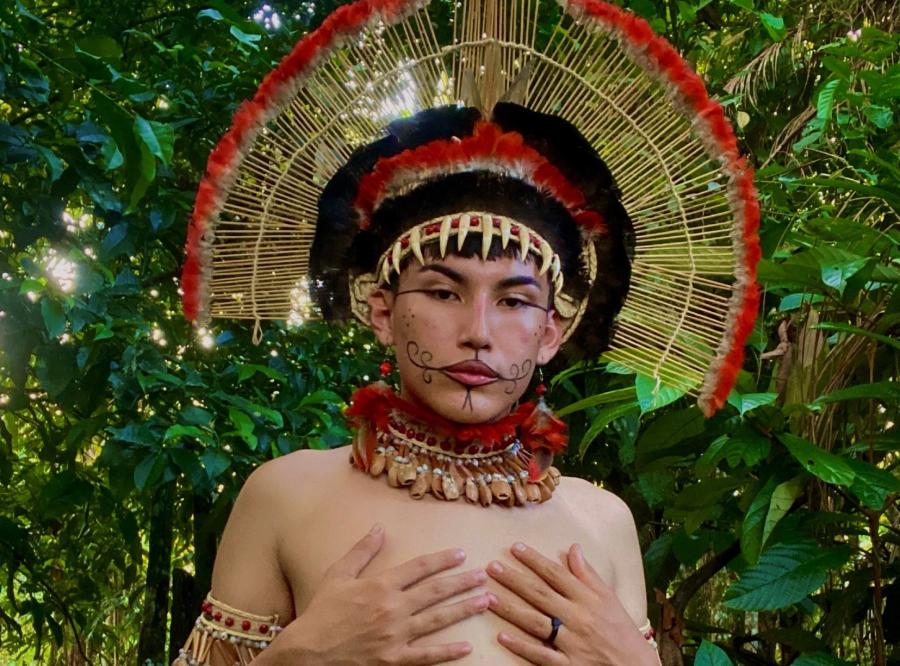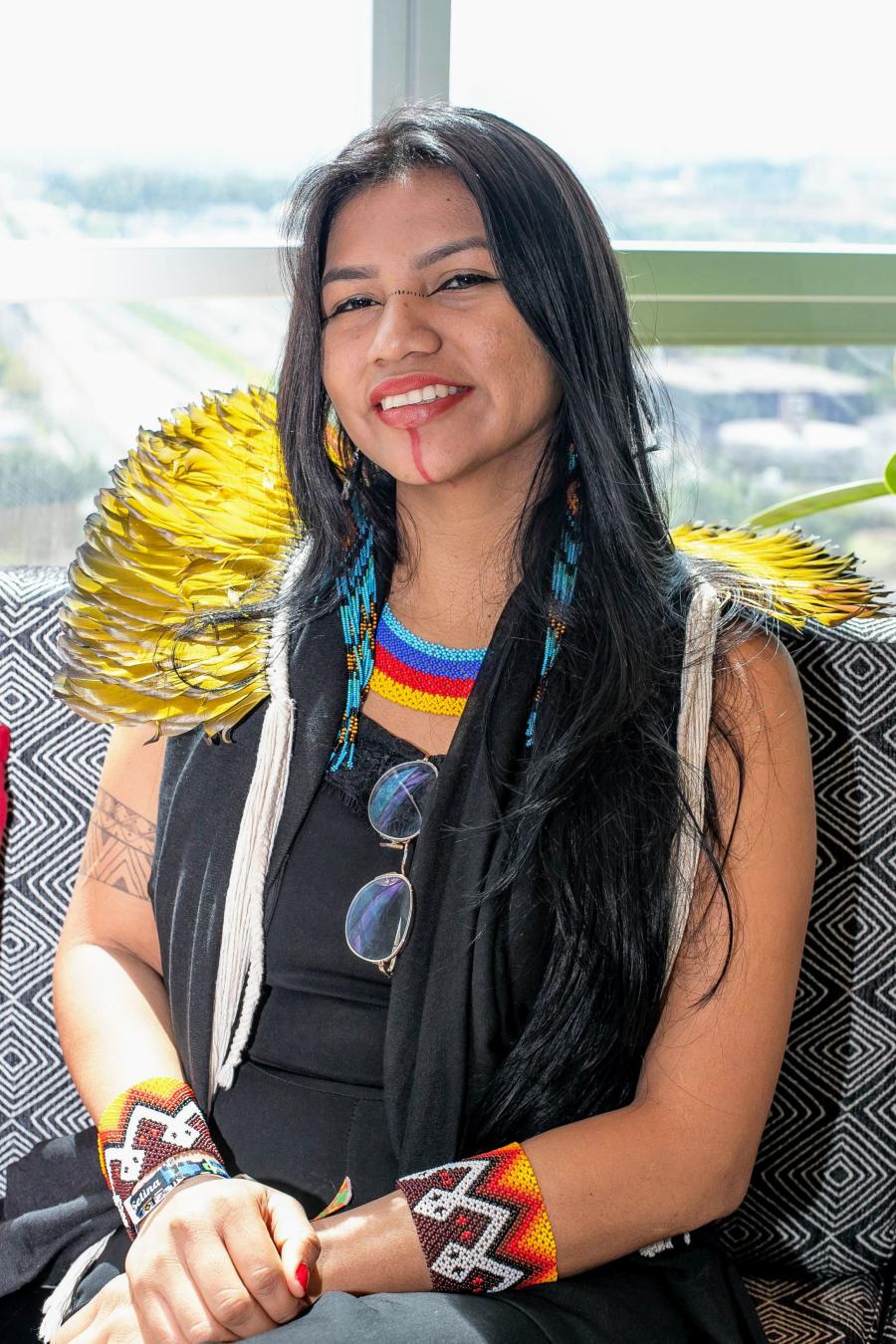On June 2, 1983, Indians in the Xingu National Park, long heralded as the model reserve of Brazil's Indian agency, FUNAI, confiscated a private airplane. It had landed illegally on an airstrip, to which access is controlled by FUNAI. The Indians released the owner within 24 hours, but held the plane until early August, demanding improved health care, competent management, and the resolution of longstanding land claims. The incident eventually involved not only FUNAI officials but one of the Park's founders, Claudio Villas Boas. It also became one of several controversies that triggered the replacement of long-entrenched military directors of FUNAI by civilians. The document below tells the story in the Indians" own words.
Despite the picture-postcard image of happy Xingu Indians, painted and traditionally ornamented, that decorates tourist shops in all Brazil's major cities, the Xingu Indians find their reservation - where many were moved from other areas now in development - less than idyllic. It has been noted that the image of the healthy happy Xingu Indian so widely divulged has become the image of all Brazilian Indians, serving to mask neglect and active destruction of Indian populations around the country.
Xingu Indians had previously shown that this image distorts their reality. In 1978 the Indians' choice for Park director was fired and replaced by Apoena Mirelles, the choice of FUNAI and the Park's founders, the Villas Boas brothers. Despite the Villas Boas' longtime role as protectors and spokesmen for the Indians, Apoena was forced to step down amid demands for the return of Olimpio Serra. In 1980, the Txucahamae Indians, angered over successive redemarcations of the Park that had forced them to move their villages and the failure of FUNAI to clearly define the northeastern boundary of the Park, killed 11 workers clearing forest in the disputed area.
The plane confiscation occurred at Diauarum post, where many have long felt that their interests were not being served by FUNAI. Many of the Indians of Diauarum were transferred there from distant areas, attracted by the promise of secure land, good health care, and supplies of industrialized goods. But the Indians have seen a road cut through the park, boundaries redrawn, and health care fail at crucial moments. This year health conditions were especially poor in Diauarum, with shortages of basic medicines and equipment. The policy of giving goods such as fishhooks and munitions, common in the era of the Villas Boas, has been phased out, but the program of buying handicrafts to generate income to buy such goods had been so poorly administered that people often went without basic subsistence items.
In seizing the airplane, the Indians served notice that their concerns had not been taken seriously by FUNAI, but what to make of the accusations against Claudio Villas Boas, who worked in the Xingu for thirty years and who, along with his brother Orlando, is largely responsible for the existence of the Xingu National Park? The dedication of the Villas Boas in bringing medical assistance to the Xingu and attempting to secure the land that is now the park is beyond question. But many Indians, especially those formerly most closely associated with them, say that the Villas Boas treated Indians very paternalistically. When Claudio Villas Boas attempted to intercede with the Indians on behalf of FUNAI, they demanded to deal with the real authorities in the case - the President of FUNAI and other officials. In demythologizing the epoch of the Villas Boas brothers, the Indians explode the image of themselves as the pretty Indians of the model reservation that has been propagated since the Park has existed without their consent.
Article copyright Cultural Survival, Inc.



